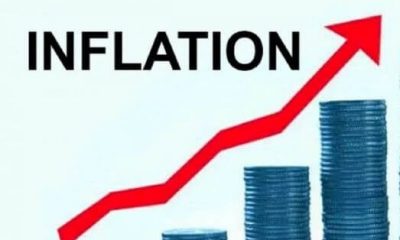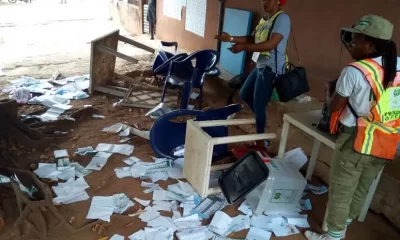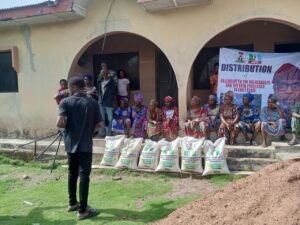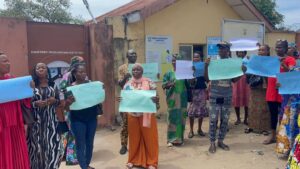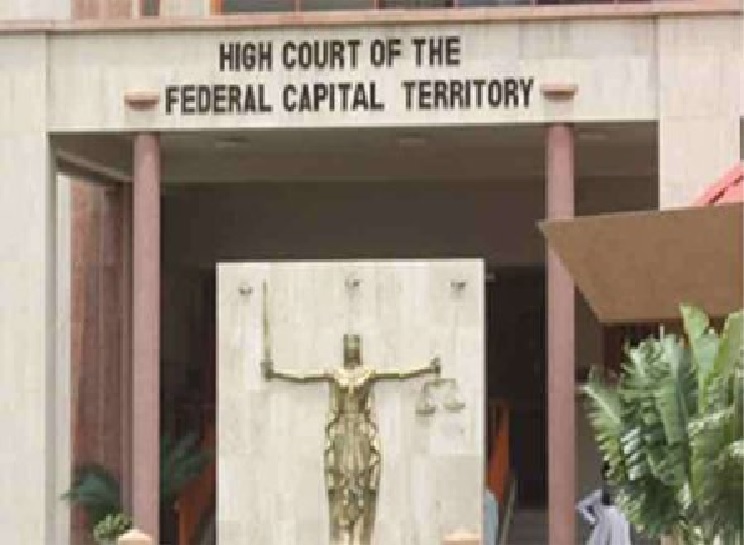Energy and Power
FG Launches Power Recovery Programme over National Grid Collapse

The Federal Government has launched the Power Sector Recovery Programme (PSRP) to address the inefficiencies in the system.
The nation’s power sector has faced some challenges such as inconsistent implementation of tariff policy; high, unsustainable losses in the distribution network and lately grid collapse.
But the Federal Government has taken some critical actions to provide universal energy access. The Rural Electrification Strategy and Implementation Plan and the Nigeria Electrification Project aim to improve access for the underserved rural populations and institutions. In addition, the Presidential Power Initiative (PPI) aims to increase the power supply to 7GW in its first phase.
The World Bank responded to the government programs with a large and comprehensive portfolio of projects. The Power Sector Recovery Programme (PSRO, US$750m) supports the implementation of critical reforms that aim to improve power sector policy and regulatory environment, enhance transparency, strengthen the sector’s financial sustainability and reduce fiscal risk.
The Nigeria Electrification Project (NEP, US$350m) supports expanding electricity access through off-grid solutions to remote rural communities using private sector financing models.
On June 14, 2022, the Electricity Hub, an electricity-focused media organisation in collaboration with the World Bank, organised its 70th Power Dialogue to assess the key achievements of the sector and the challenges hindering universal energy access.
The panel discussants included Engr. Abubakar Aliyu, Honourable Minister of Power, Federal Republic of Nigeria, Shubham Chaudhuri, Country Director, The World Bank, Ashish Khanna, Regional Director for Infrastructure, Africa West and East, The World Bank, and Narlene Egu, Senior Energy Advisor and Team Lead, USAID/Power Africa Nigeria.
The Head of Operations for The Electricity Hub, Okoro Uchechukwu, noted that “this session is part of a series of dialogues – organised in collaboration with the World Bank – focusing on improving private sector investment and participation in Nigeria’s Power Sector”.
Engr. Aliyu stated that the Nigeria Transmission Expansion Programme (NTEP), financed by the World Bank, the African Development Bank, and the Japan International Cooperation Agency, has concluded its first phase (NTEP-1) and is set to commence its second phase, which will focus on grid expansion.
The NTEP aims to increase the wheeling capacity of the transmission network. The Presidential Power Initiative (PPI), which seeks to increase the generation capacity from 4,500MW to 7,000MW in its first phase and attain 25,000MW by 2025, has begun with early works. Aliyu added that the PPI team recently visited Germany to inspect the manufacturing and production process of ten (10) mobile substations and transformers.
The equipment will be delivered to the country in Q4 2022. On the possibility of integrating renewables into the national grid, the Minister emphasised that the grid is yet to attain stability.
However, plans to diversify the nation’s energy mix are well underway. The Federal Government plans to execute 14 renewable energy projects with a cumulative capacity of 1,000MW. However, “these projects will be solely off-grid until the transmission network has been able to meet its baseload requirement.”
Shubham Chaudhuri, Country Director, The World Bank, noted that to achieve universal energy access in Nigeria, the government must have sustained commitment. There is a need for a clear regulatory and policy environment. This is essential to drive private sector investment, create incentive mechanisms for stakeholders and ensure sector accountability.
Shubham highlighted that the World Bank had approved about US$1.5 billion in new commitments to support the existing government initiatives for the power sector. He further stated that the power sector had experienced steady growth since establishing the Power Sector Recovery Programme (PSRP).
Deliberating on the electricity deficit gaps in the country, Ashish Khanna, Regional Director for Infrastructure, Africa West and East, The World Bank, added that the Nigeria Electrification Plan offers a huge opportunity for increased private sector participation.
He noted that the Rural Electrification Agency (REA) had achieved recent milestones through its Result-Based Financing programmes.
The World Bank is dedicated to providing catalytic tools to improve the electricity supply in the country. The Bank’s Nigerian engagement is one of the largest power sector engagements in the world. Hence, more private sector participation is needed to enable the country to achieve universal energy access.
The panellists all agreed that stakeholder collaboration is key to improving the impacts of interventions in the sector. “Solving the sector’s challenges must be done collaboratively and not in silos,” Emeka Okpukpara, Partner Nextier Power added. Prioritising, aligning and effectively executing interventions requires increased coordination and collaboration between stakeholders.
Business News
Edun Seeks Liquidity for Power Sector as NDPHC Declares Calabar Best Power Plant

By Eze Okechukwu, Abuja
The Minister of Finance and Coordinating Minister for the Economy, Wale Edun yesterday declared that liquidity was the major hindrance required by the troubled power sector to achieve the desired result of producing steady Power in Nigeria.
This is as the Managing Director of Niger Delta Power Holding Company (NDPHC) Chiedu Ugbo informed the Senate Committee on Power in Abuja yesterday that the Calabar Power Generation Company under its ownership was the best performing power plant in the country.
In his submission to the Committee investigating the controversial Make up Gas (MUG) Reprocessing Deal Involving the Ministry of Finance, NDPHC, Calabar Generation Company Limited and ACUGAS Limited, the Minister of Finance pointed out that the need for liquidity into the Power Sector remained the key to unlocking it.
The Minister who made the submission through his Special Assistant, Mallam Dahiru Moyi said the agreements on Gas supply between NPDHC and ACUGAS Limited was inherited by former President Muhammadu Buhari in 2015, following after the agreement was signed in 2011 during President Goodluck Jonathan’s administration.
According to him, “just as the Ministry of Justice was not aware of the contract agreement, the Ministry of Finance was also not part of it from the beginning but since government is a continuum, the Ministry of Finance later came into it for the purpose of facilitating the required liquidity.
“The issues on ground about contracts agreements being investigated by the Senate Committee on Power is not about restructuring but providing the required liquidity which the Ministry of Finance is doing through collaboration with the Nigerian Liquified Natural Gas (NLNG).
“Since NLNG pays Gas in Dollars, the Ministry is collaborating with it for a practical solution of bringing liquidity into the age long contract agreement through Deed of Transfer.
“Make Up Gas (MUG) belongs to Calabar, Calabar belongs to NDPHC and NDPHC belongs to Federal and State governments with the Federal Government having 52.68%”, he said.
In his own submission before the Committee, the Managing Director of NDPHC, Chiedu Ugbo said the company as a result of the Gas supply agreement with ACUGAS Limited was taking Gas from three out of five units and generating power from Calabar plant to the National Grid which according to him was the best power plant in the entire country.
He said NDPHC went out of its way to construct an 80 kilometres gas pipeline for utilization of MUG in Calabar and Alaoji power plants.
He however lamented that problems relating to systemic transition, frequency and voltage issues have not made the firm achieve the desired results.
In his remarks, the Chairman of the Committee, Senator Enyinnaya Abaribe (APGA, Abia South) thanked the stakeholders for giving the Committee clarity on the issue but added that it was still an ongoing investigation.
Energy and Power
Oil, Electricity Workers’ Unions Mobilise for Planned Strike

The Nigeria Union of Petroleum and Natural Gas Workers (NUPENG) has directed its members to comply with the directive of the two labour centres to begin an indefinite nationwide strike on Monday.
Its General Secretary, Mr Afolabi Olawale, in a statement on Saturday, said the union was committed to ensuring total compliance with the directive.
Recall that the Nigeria Labour Congress (NLC) and Trade Union Congress of Nigeria (TUC) declared an indefinite nationwide strike to begin on Monday, to express their grievances over the proposed new minimum wage.
.In a joint statement signed by NLC President, Mr Joe Ajaero and TUC President, Mr Festus Osifo, the centres declared the strike over the tripartite committee’s inability to agree on a new minimum wage and the hike in electricity tariff.
Afolabi said the union was concerned and disturbed with the insensitive attitude of the federal government “to the very critical issue of negotiating a new minimum wage for Nigerian workers”.
“This is in view of the various socio- economic policies of this administration that have impoverished the working people of this country.
“Leaders of our great union at all levels, from the units, zones and branches, should immediately put all processes in place to ensure total compliance with this directive.”
Also, the National Union of Electricity Employees (NUEE) said it was mobilising its members to embark on the strike following the directive of NLC and TUC.
The Acting. General Secretary, Mr Dominic Igwebike, gave the directive to the members in a statement.
Igwebike said that along with the reasons of inconclusive negotiations on the minimum wage and electricity tariff hike, apartheid categorisation of Nigeria electricity consumers into bands was another, to embark on the strike.
“Given the above, all national, state, and chapter executives are requested to start the mobilisation of our members in total compliance with this directive to ensure the government does the right thing as stated above.
“The withdrawal of services becomes effective on Sunday 2nd June by 12.00 midnight, “ the union leader said. (NAN)
Business News
FG Secures $500m World Bank Loan to Boost Electricity Distribution

By Tony Obiechina, Abuja
In a strategic move to address the identified gaps in the Electricity Distribution Companies (DisCos), the Federal Government has secured a $500 million loan from the World Bank.
In a statement by Head of Public Communications, Bureau of Public Enterprises ((BPE) Amina Tukur Othman on Thursday, approval for the facility was given by World Bank Board of Directors on February 4, 2021.
According to the statement, “this funding supports the Nigerian Distribution Sector
Recovery Program (DISREP) aimed at improving the financial and technical
performance of the DisCos”.
The Distribution Sector Recovery Program is designed to enhance the
financial and technical operations of the DisCos through capital investment and
the financing of key components of their Performance Improvement Plans (PIPs),
which have been approved by the Nigerian Electricity Regulatory Commission
(NERC).
Key areas of improvement include:
• Bulk procurement of customer/retail meters and meter data
management systems.
• Implementation of a Data Aggregation Platform (DAP).
• Strengthening governance and transparency within the DisCos.
• Program Components
• The DISREP comprises two main components:
• Program for Results (PforR):
• Allocation: $345 million
• Purpose: Support the implementation of selected PIP components.
Others include
• Implementation: Bureau of Public Enterprises (BPE)
• Investment Project Financing (IPF):
• Allocation: $155 million
The Purpose is to finance the procurement of meters, a Data Aggregation
Platform, and Technical Assistance.
The DISREP loan, particularly the Investment Project Financing (IPF) component, is expected to significantly benefit the Nigerian Electricity Supply Industry (NESI) by:
• Closing the metering gap
• Reducing Aggregate Technical, Collection, and Commercial (ATC&C)
losses
• Improving remittances and liquidity for the DisCos
• Enhancing the reliability of power supply
• Increasing transparency and accountability within the DisCos.
The $500 million DISREP loan from the World Bank offers concessional financing
with more favorable terms than commercial bank loans. This will enable the DisCos to:
1. Invest in critical distribution infrastructure.
2. Improve ATC&C losses.
3. Increase power supply reliability.
4. Achieve financial sustainability in the power sector.
5. Enhance transparency and accountability.
The statement further explained that significant progress has been made in the preparation of the DISREP Program, with several key milestones achieved, and approval by the Federal Executive
Council (FEC) on August 3, 2022. execution of the Financing Agreement by the
Federal Ministry of Finance, Budget and National Planning, and the World Bank,
adoption of the Program Operations Manual (POM) by BPE and TCN, obtained
Legal Opinion from the Attorney-General of the Federation, Execution of the
Subsidiary Loan Agreement, effective declaration of the DISREP Program on
January 31, 2023, inauguration of the DISREP Technical Committee on May 6,
2024, inclusion in the Federal Government Borrowing Plan, approved by the
Senate Committee on May 16, 2024.
To ensure repayment assurance, the Bureau of Public Enterprises sought and
obtained approval from the Nigerian Electricity Regulatory Commission (NERC)
and the National Council on Privatisation (NCP) for a structured repayment
hierarchy.
The structure prioritizes payments including, Statutory Payments (Taxes), Repayment of CBN market loans, Market obligations , Repayment of DISREP loan and DisCos’ net revenue.
This structured repayment plan aims to mitigate risks associated with repayment
uncertainty and defaults, with regulatory sanctions imposed for any defaults.






